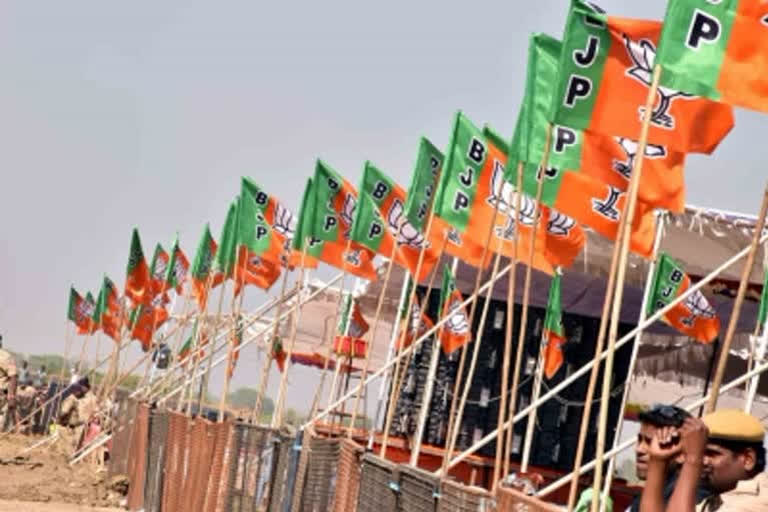New Delhi: The BJP gathered three-fourth of electoral bonds sold in the financial year 2019-20 while the main opposition party, the Congress received 9 per cent of the total bonds worth Rs 3,435, according to the Election Commission of India (ECI) data.
As per the annual audit report of the BJP, the party's voluntary contributions through the electoral bonds route has gone up from 21 per cent in 2017-18 to 74 per cent in 2019-20. The party received Rs 210 crore from bonds out of the total Rs 989 crore it got as voluntary contributions in 2017-18 and Rs 2,555 crore out of 3,427 crores the party raised in 2019-20.
On the other hand, the Congress income had registered a 25 per cent decline to Rs 682 crore in 2019-20 from Rs 998 crore in 2018-19. The party received Rs 383 crore in 2018-19 of the total share from the bonds while in 2019-20 party managed to collect Rs 318 crore.
Also read: SC junks plea seeking ban on sale of Electoral Bonds ahead of state polls
Electoral bonds are monetary instruments that citizens or corporate groups can buy from some bank and give to a political party, which is then free to redeem them for money. These bonds are issued four times every year in January, April, July and October. Last year, they were issued only in January and October.
The annual audit report submitted by BJP revealed that over Rs 400 crore were spent on advertisements during the election campaigns. The ruling party spent Rs 249 crore on electronic media while Rs 47.38 were spent on print media.
As per the audit reports submitted by different political parties, in 2019-20, the Nationalist Congress Party (NCP) collected Rs 29.25 crore through bonds, Trinamool Congress (TMC) collected Rs 100.46 crore, the Dravida Munnetra Kazhagam (DMK) Rs 45 crore and Aam Aadmi Party (AAP) Rs 18 crore.
Also read: JMM first party to declare name of donor who made contribution through electoral bonds
"While electoral bonds provide no details to the citizens, the said anonymity does not apply to the government of the day, which can always access the donor details by demanding the data from the State Bank of India (SBI). This implies that the only people in the dark about the source of these donations are the taxpayers. It may also be noted that the printing of these bonds and SBI commission for facilitating the sale and purchase of the bonds is paid from the taxpayers' money by the central government," the election watchdog Association of Democratic Reforms (ADR) said in a recent statement.



